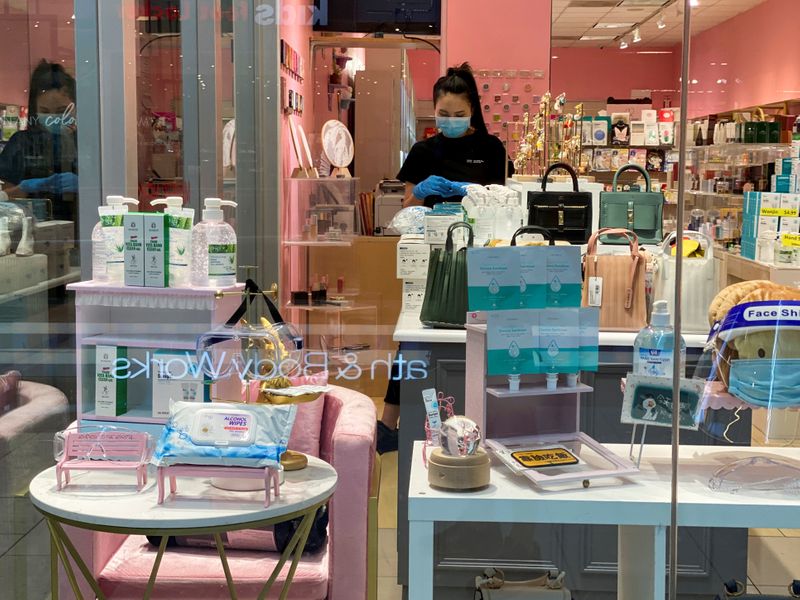(Reuters) – Voters are feeling more optimistic about the economy as they weigh their choices in the upcoming U.S. presidential election, which could give President Donald Trump a boost in his battle against Democratic presidential nominee Joe Biden, who leads in the polls.
U.S. consumer confidence rebounded more than expected in September, making its biggest monthly gain in 17 years, driven by perceived improvements in the job market, the Conference Board reported Tuesday..
The percentage of households saying jobs are “plentiful” increased to 22.9% from from 21.4%, the Conference Board said, compared with 20% who see jobs as hard to get.
“It could be good news for Trump – the better people think about the economy, the more they vote for the incumbent,” said Steven Blitz, Chief U.S. Economist at TS Lombard.
Confident consumers are more likely to part with their cash rather than saving it, and stronger household spending lifts the economy.
How you feel shapes how much you spend: https://graphics.reuters.com/USA-ELECTION/ECONOMY/xegpbjbarpq/chart.png
An earlier confidence measure, however, gives the advantage to Biden: in an election year, the July measure of consumer confidence is more predictive than September’s, Blitz said. Readings under 98 highly correlated with a win for the candidate from the out-of-power party. July’s read was 91.7.
The coronavirus recession is like no other, making predictions about voting based on economic data particularly difficult. The downturn was sharper and deeper than expected, and the recovery so far has been faster than forecast.
Still, the labor market is in a deep hole. The economy has regained about half the jobs lost since the onset of the coronavirus crisis, and job loss is uneven, with low-wage workers hurt hardest. About 26 million U.S. residents continue to rely on some form of unemployment insurance.
Voters will get a fresh chance to judge the labor market on Friday, when the U.S. government releases its monthly jobs report, the final broad official read on U.S. employment before the Nov. 3 election.
(Reporting by Ann Saphir; Editing by Heather Timmons and Chizu Nomiyama)

























